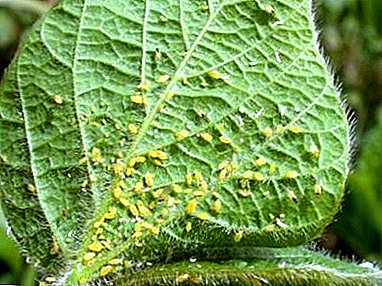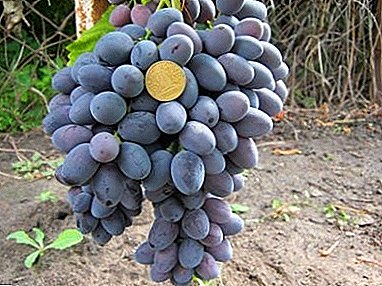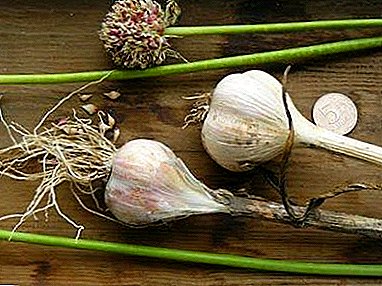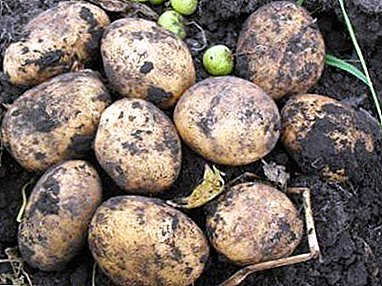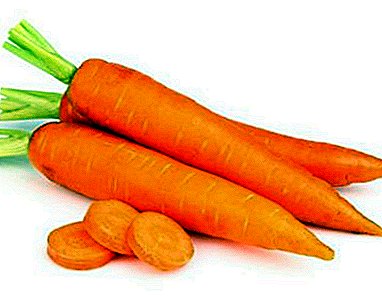
Among the leafy vegetables, basil is one of the most common in cooking. Not only the leaves, but also the seeds of the plant have valuable nutritional and medicinal properties.
For men, the most useful varieties are lemon, peppermint and eugenolous basil, the consumption of which in food helps to gently strengthen and support men's health.
In the article we will consider in detail the beneficial properties for men, as well as contraindications to use.
The composition and use of vegetables
Chemical composition (per 100 grams):
- Caloric content - 25 Kcal (1.5% of the daily rate for men).
- Proteins - 2.3 g.
- Fat - 0.4 g.
- Carbohydrates - 2.8 g
- Water - 93.0 g.
- Pectins - 1.5 g.
Vitamins:
 retinol - 27 mg;
retinol - 27 mg;- Riboflavin - 45 mg;
- thiamine, 23.9 mg;
- Pantothenic acid - 24.3 mg;
- folic acid - 17 mg;
- choline - 1.2 mg;
- Vitamin B12 - 34 micrograms;
- ascorbic acid - 20.1 mg;
- cholecalciferol - 3.4 mg;
- tocopherol - 1.1 mg;
- vitamin K - 346 mg;
- Vitamin PP - 11.7 mg.
Trace elements:
- calcium - 17.5 mg;
- zinc - 4.5 mg;
- phosphorus - 7.2 mg;
- sodium, 0.3 mg;
- magnesium - 12.3 mg;
- selenium - 0.9 mg;
- chlorine - 1.2 mg;
- iron - 17.6 mg;
- manganese - 65.7 mg;
- selenium - 0.5 mg;
- Chromium - 1.2 mcg.
The benefits of basil for men:
- Improving the blood circulation of the pelvic organs and genitals.
- Increased potency, sexual desire and libido.
- Increasing the duration of sexual contact, maintaining erectile function.
- Recovery of outflow of fluid from the prostate gland and the fight against swelling of the genitals.
- Improved venous outflow.
- Maintaining the normal process of spermatogenesis by increasing the pressure in the pelvic organs.
- Rapid replenishment of the protein level in the body.
- Improving the quality and duration of sleep.
- Reducing dependence on smoking.
- Improving attention, which is important for men working in transport.
The overall benefits of basil for the body:
 On the part of the skin - increasing skin elasticity, regeneration of mucous membranes, accelerating wound healing, eliminating itching and edema, purulent skin diseases.
On the part of the skin - increasing skin elasticity, regeneration of mucous membranes, accelerating wound healing, eliminating itching and edema, purulent skin diseases.- On the part of the general condition - strengthening antiviral immunity, increased attention.
- On the part of the gastrointestinal tract - accelerating the absorption of nutrients, stimulating the secretion of gastric juice and bile, improving motility, excretion of toxins.
- Strengthen hair, nails, gums and teeth.
- From the urinary tract - a moderate diuretic effect, cleansing the kidneys from salts, a beneficial effect on reproductive function.
- On the part of the cardiovascular system - high blood pressure, increased heart function.
- Cancer Prevention.
- Removal of mucus from the respiratory tract, coughing effect.
- Decreased blood sugar levels.
Indications for use
- Acute respiratory viral diseases.
- Reduced memory, attention, concentration.
- Bleeding gums.
- Venous congestion in organs, varicose veins.
- Diabetes.
- Low blood pressure.
- Sexual dysfunction.
- Diseases of the skin and mucous membranes.
- Digestive disorders, gastritis.
- Kidney disease.
Can it harm the body and is there a contraindication to use?
Basil has the ability to accumulate mercury, which is harmful to humans.therefore it is not recommended to take this plant for more than 3 weeks without interruption. A break in the reception of basil should be at least 10 days.
Basil can be harmful when combined with certain medications (affecting the functioning of the heart, the coagulation system, antibiotics), therefore, while taking medication and basil, you should consult with your doctor.
Contraindications to the use of basil are:
 suffered a heart attack and stroke;
suffered a heart attack and stroke;- transient ischemic attack;
- thrombophlebitis;
- pre- and postoperative period;
- increased acidity of the stomach;
- peptic ulcer in the acute stage;
- pyelonephritis;
- individual intolerance.
Precautionary measures:
- not to use in any form for more than 20 days without a break;
- do not eat more than the recommended daily intake;
- Do not store basil in a wet place.
How to apply: frequency and dosage
Men basil can be used both in fresh and dried, frozen, canned, thermally processed form. Eat greens and plant seeds. Without a break, basil can be used daily for no more than 3 weeks, after which they spend a break of 10 days and, if necessary, continue taking it. The maximum daily amount of basil permitted to use is 100 grams.
What can you cook?
Basil is added as a seasoning to any vegetable and meat dishes to taste. When chopping, basil seeds can be added to the dough when baking. Mouth rinse solutions are also prepared and basil is made from essential oil for external and internal use. Outside, basil is crushed for skin and added to ointments and pastes; lotions are prepared from the leaves.
Step-by-step cooking recipes
With seeds
Dessert with seeds
Ingredients:
- 30 grams of basil seeds;
- 200 ml of water;
- 100 ml of berry or fruit syrup.
Cooking:
- Basil seeds, rinse and pour a glass of water.
- Stir, leave to swell for 20 minutes.
- Add syrup, stir.
- Refrigerate until cool.
Application: inside, 300 ml of dessert in 3 doses, half an hour before meals. Course 10 days.

Drink
Ingredients:
- 10 grams of lemon basil seeds.
- 200 ml of water.
- Sugar, lemon or honey to taste.
Cooking:
- Rinse the seeds of basil, pour 200 ml of warm water for 30 minutes.
- Add lemon, honey or sugar, mix.
- Eat cold.
Application: inside, 200 ml a day once, regardless of meals. Course 10 days.

Salad
Ingredients:
- 300 grams of zucchini;
- 200 grams of green beans;
- 150 grams of red bell pepper;
- 50 grams cherry tomato;
- 50 grams of fresh basil leaves;
- garlic, vegetable oil, salt to taste.
Cooking:
- Wash vegetables and chop finely.
- Zucchini boil for 5-7 minutes.
- All vegetables mix.
- Wash basil leaves, finely chop, add to vegetable mixture.
- Add spices and garlic to taste.
- As a dressing, use olive or corn oil.
Application: inside, 200 grams of lettuce for half an hour before the main meal. The course is 20 days, then a break of 10 days, if necessary, repeat the course.

What other leafy vegetables are good for men?
Chard, arugula, mung bean, kale, Japanese cabbage, spinach, leaf mustard, lettuce, purple cabbage "Kale", salad "Romano", corn, and celery are most useful for men among leafy vegetables.
Basil is a source of a large amount of vitamins and minerals that are beneficial for men's health and beneficially affect the functions of the nervous system, intestines, lungs, and genitals. Regular use of seeds and leaves of fresh and dried basil helps to maintain health throughout the year and to prevent acute and chronic diseases.


 retinol - 27 mg;
retinol - 27 mg; On the part of the skin - increasing skin elasticity, regeneration of mucous membranes, accelerating wound healing, eliminating itching and edema, purulent skin diseases.
On the part of the skin - increasing skin elasticity, regeneration of mucous membranes, accelerating wound healing, eliminating itching and edema, purulent skin diseases. suffered a heart attack and stroke;
suffered a heart attack and stroke;
